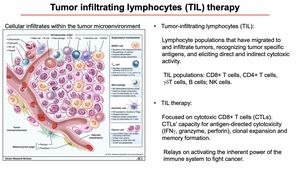Renesas Electronics has reported its fiscal year 2024 results, showing significant financial declines across several key sectors, mainly driven by stagnation in automotive demand and challenges within the factory automation and industrial equipment markets.
On February 6, 2024, Renesas announced its consolidated net profit for the fiscal year, which dropped by 35% to 219 billion yen (approximately $1.6 billion). The company's total sales revenue also saw an 8% decrease, landing at 1.3484 trillion yen (around $9.67 billion).
According to Jonathan Naraki, Head of AI, Data & Analytics, Information Systems at Renesas Electronics, "The demand for microcontrollers used in automobiles and declines seen across industrial sectors caused our sales to decline significantly." He elaborated on the challenges they faced, stating, "Despite our efforts to optimize factory utilization, we have not seen the anticipated recovery in demand," highlighting the difficulties they are encountering due to changing market conditions.
Segment Performance: The auto sector reported mixed results, with semiconductor sales increasing by 6%. This suggests some resilience amid broader declines. Conversely, the industrial, infrastructure, and IoT segments faced more significant setbacks, experiencing a substantial 20% drop. This decline underlines the fluctuated demand for embedded solutions and the heightened competition Renesas faces as it continues to navigate through turbulent market conditions.
Operating income for the company suffered as well, decreasing by 43% to 222.9 billion yen. This dramatic shift is indicative of shifting market dynamics and underlying economic pressures affecting semiconductor manufacturers worldwide. The slowdown can largely be linked to factors such as excess inventory at Renesas's partners and clients, which became apparent around the summer of 2024, indicating caution by customers before increasing orders again.
Renesas has had to implement operational adjustments, including lowering factory operating rates to optimally manage resources amid this environment of excess supply. The company's proactive stance reflects its commitment to adapt to the changing market scenarios as they strive to achieve financial stability.
Looking forward, analysts are closely monitoring Renesas's future moves, particularly with its decision not to disclose its earnings outlook for the fiscal year 2025 at this time. Market commentators suggest the company may face continued headwinds but also highlight potential areas of growth within the automotive sector, where sales could pick up due to increased usage of microcontrollers.
The company, which has acquired nine firms over the past eight years to bolster its market position, has acknowledged the additional challenges posed by integrating diverse data platforms stemming from these acquisitions. Naraki pointed out, "Our data foundation has been complicated by the acquisitions, creating multiple overlapping systems and workflows which pose unique challenges as we draft strategies to streamline operations and drive efficiency. We recognize the growing need for innovative solutions to meet market demands."
This outlook reflects not only the current challenges faced by Renesas Electronics but also embodies the broader narrative of the semiconductor sector grappling with demand volatility amid global shifts. Investors and market watchers will be focused on how Renesas adapts its strategies to align with improving market conditions.



